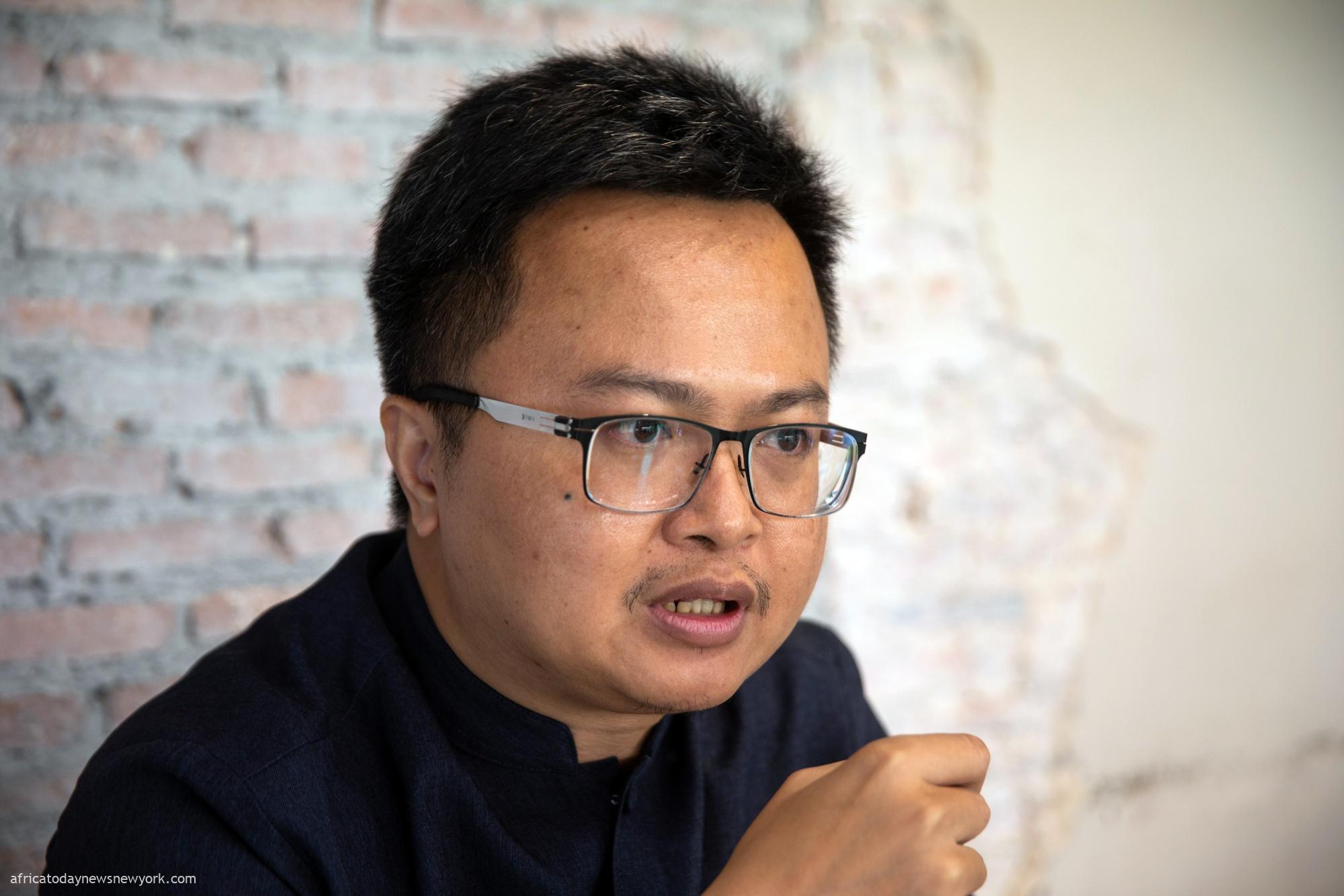Arnon Nampa, a well-known political activist in Thailand, has been convicted and sentenced to four years behind bars, sparking renewed debate over the nation’s divisive royal defamation law.
He was found guilty by a Bangkok court for remarks he made during a protest in October 2020.
In Thailand, the lese-majeste law strictly prohibits any form of disrespect towards the monarchy, with the potential for severe incarceration.
The law has been more rigorously applied since the 2014 military coup in Thailand.
Mr. Arnon, a human rights advocate, gained distinction as the first activist to openly propose a nationwide discourse on the monarchy’s role within today’s Thailand.
The judgment comes on the heels of extensive public discourse about the law, which intensified after the general election in May.
The progressive Move Forward party, defying expectations, clinched the majority of votes and parliamentary seats, all while championing comprehensive reform, including amendments to the lese-majeste law.
Read also: UN Rights Office Urges Thailand To Amend Royal Insult Law
The military-appointed senate justified their actions of preventing Move Forward from assuming government control by referencing this demand, despite the party’s clear parliamentary majority alongside its coalition allies.
Many senators contended that advocating for alterations to the law constituted a potential jeopardy to the monarchy’s standing in Thailand and, therefore, could not be permitted.
In light of this, a substitute coalition was established, featuring several of the conservative parties from the outgoing government. It is now certain that any deliberation on the monarchy will be vigorously discouraged.
Arnon Nampa rose to fame on August 3, 2020, when, amidst student-led protests against the government with military backing at the time, he shattered a deeply ingrained taboo by advocating for the monarchy’s inclusion in broader reform discussions.
This was an incredibly daring move. In Thailand, individuals have faced severe consequences, including 30 to 40 years in prison, for posts on social media that were judged to defame the royal family.
Challenging a lese-majeste charge is an exceptionally challenging endeavor. Trials are frequently held in private, and defendants are subjected to intense pressure to confess their guilt, often in hopes of receiving reduced sentences, which are usually severe.
Mr. Arnon’s appeal found a receptive audience among many of Thailand’s younger population. Thailand’s king holds an official position above political matters and predominantly serves a ceremonial function in public, much like other constitutional monarchs.
Despite this, the Thai monarchy is acknowledged as one of the most opulent globally and wields substantial real-world authority. King Maha Vajiralongkorn personally oversees vital army units, and much of the palace’s financial arrangements and influence tactics remain hidden.
Just seven days after Mr. Arnon’s taboo-breaking proposal, students at Thammasat University, renowned for its academic excellence, released a manifesto urging for extensive changes to the monarchy.
In the ensuing five months, the capital city of Bangkok and other urban centers witnessed a series of increasingly bold demonstrations where the monarchy was at the forefront. They argued that substantive change would require discussions about the monarchy.
Before the 2020 protests, there was a two-year suspension of the lese-majeste law, following the king’s request. It was quietly acknowledged by royalists that such legal actions had a detrimental impact on the monarchy’s reputation.
However, the public criticism, and at times outright disdain, directed towards the royal family by certain demonstrators led to a reassessment.
By December 2020, the lese-majeste law had been reactivated against protest leaders, with Arnon Nampa bearing the brunt, having been slapped with 14 charges.
Furthermore, he is dealing with multiple accusations under other national security legislations such as Sedition and the Computer Crimes Act, and has already endured several months behind bars.
The 2020 protests gradually waned in the following year. However, the core principles of the youth movement that propelled them continued to influence the Move Forward party’s 2023 election campaign.
While strategically avoiding a direct call for royal reform, the party stressed the need for a nationwide discourse on the institution, echoing Mr. Arnon’s position, and advocated for changes to the lese-majeste law.

